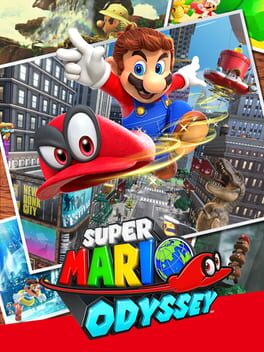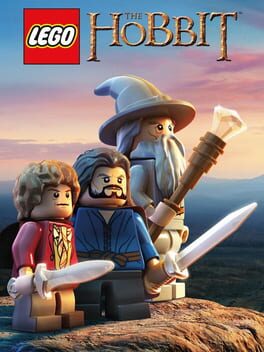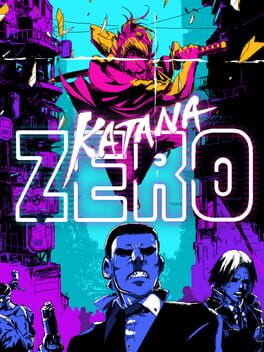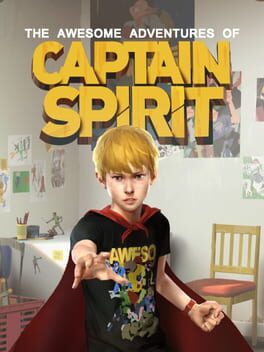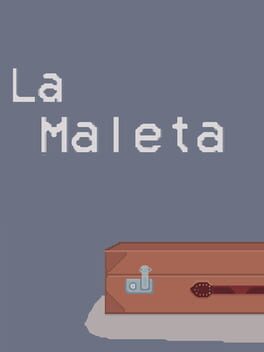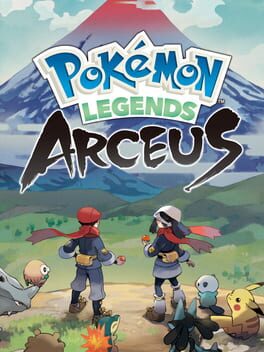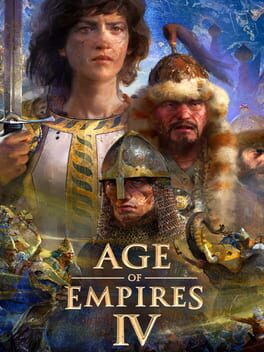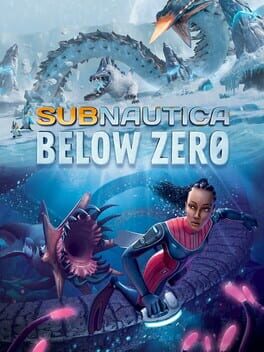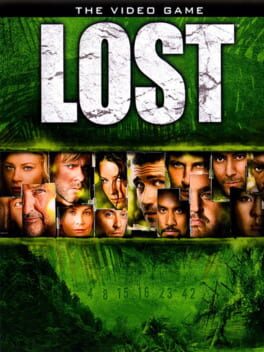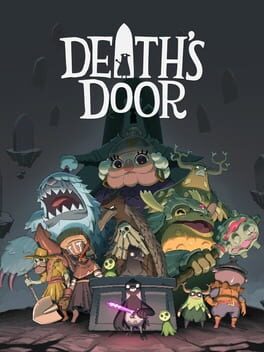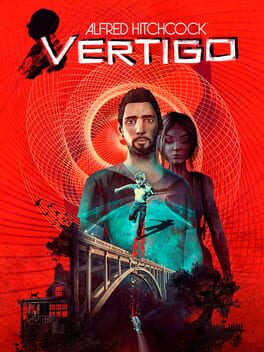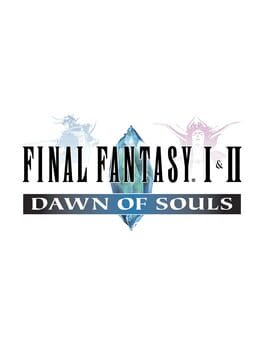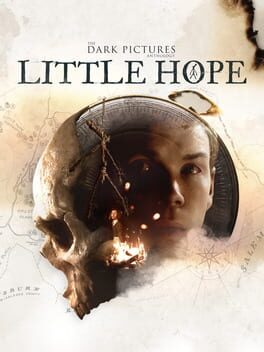Casinocaster
2017
2014
2019
I was expecting more focus on gameplay than narrative, and I found exactly the opposite. The anxiety and predisposition to violence of an intoxicated war veteran is perfectly depicted in both the gameplay and the trippy cutscenes. Audio, dialogues, visual effects, controls and interfaces are all excellent. Sadly, the entire game felt (to me) like a first act and suddenly it finished.
I played this after chapter 1 of Life is Strange 2. Can't really give 5 stars to this as there isn't enough time to deliver a bigger narrative, but in my 100 minutes of gameplay I had more than a couple of memorable, very delightful scenes and eventually found myself missing my mom. Looking forward to go back to LiS 2 right away.
2019
Such a precious, safe place to return to when you are in need of a happy mood. It makes you get back in touch with your younger self who played with animals and read all the encyclopaedias.
As a management/sim game, the quality level is very high, with many well crafted systems. When you are building your park, even if you encounter issues with obstructed items that would frustrate you deeply in any other game, the uplifting music, cute animals and charming artstyle keep you in the most enjoyable mindset.
The stuff people are able to make with their parks is awe-inspiring. I got all the achievements but I will certainly go back to Planet Zoo (maybe the sandbox mode?) soon enough.
As a management/sim game, the quality level is very high, with many well crafted systems. When you are building your park, even if you encounter issues with obstructed items that would frustrate you deeply in any other game, the uplifting music, cute animals and charming artstyle keep you in the most enjoyable mindset.
The stuff people are able to make with their parks is awe-inspiring. I got all the achievements but I will certainly go back to Planet Zoo (maybe the sandbox mode?) soon enough.
2021
A breath of fresh air in a franchise that has barely moved from its core game design in more than 20 years, unfortunately hindered by its graphics.
I had a lot of fun completing the Pokédex, and welcomed the focus on Pokémon lore. Levels and Pokémon rides are designed in a smart (if clunky, at times) way to establish the progression that HMs provided in past games.
Having said that, this game could have been a revolution if Game Freak had stopped crunching one game per year.
I had a lot of fun completing the Pokédex, and welcomed the focus on Pokémon lore. Levels and Pokémon rides are designed in a smart (if clunky, at times) way to establish the progression that HMs provided in past games.
Having said that, this game could have been a revolution if Game Freak had stopped crunching one game per year.
2022
It's hard to make a review when everyone around me is giving their 10/10. Friends and online randoms who are fans of the franchise are giving me a hard time if I say anything about this game other than it being perfect. However I saw many cracks during my (long) play time and I want to talk about it.
Having said that: this game is fantastic. I am really glad I took this voyage, it was super fun to start playing along many others right after launch and share this unstoppable phenomenon. Visual and narrative design, game systems, THE MUSIC (!) - excellent stuff, everything. Also, what they did to the open world concept was refreshing and very hopeful for the industry; I expect many games will now follow this style (as opposed to the traditional, UI-packed Ubisoft kind of open worlds) just like when so many followed the Souls-like die on repeat mechanics back in the 2010's.
Moving on to what I didn't like:
- All bosses that are part of the main story or important enough are amazing: it's plain to see the amount of work that was put into detail, to create exact planned situations with the player and look stunning (quick mention - fighting dragons on horse was spectacular, Skyrim is never going to look the same). Then you have the other side of the coin: piles and piles of minibosses and foes that were plainly placed wherever and hoped for the best, often resulting in terribly frustrating encounters. In fact, many of these smaller bosses are repeated ad nauseum. You already saw this one? Then fight it in blue. Oh, you already saw that too? Then fight TWO at the same time. Not only does this diminish the feeling of "DS boss" uniqueness, but also most of the times the scenario, circumstances, timings, etc. are not prepared for a balanced fight.
- It's tough to explain, because we can't really compare with other genres, but if we criticise other games when they do this wrong then we should do that here too: bad level design. Many dungeons, both small and big, have terrible level design. Obscurity is a concept that works wonders in other fields, mostly narrative, but not in here. I understand it's kind of a trendmark in the FromSoftware house but in Elden Ring I think it didn't help at all, in any sense. It's weird, for instance I think Sekiro had way better design. Also most platform puzzles are awful.
- Bosses often have drastically different levels of difficulty (or even viability) depending on your build, kind of going against the proposal of sticking to the playstyle that you prefer.
- Some endgame areas are quite unbalanced. Often I learnt that the most practical solution would be to run away from normal enemy encounters (even bosses of the same area resulted easier) which feels awful.
These pain points marked profoundly my experience during the mid/late game, and probably the reason for them all is that there is simply too much stuff to do. This is an incredibly vast game that could have had some parts cut, reducing the erosion that all repeated content produced and omitting those parts that didn't stand up to the rest. Then again, I can't believe I'm actually dumb enough to complain about too much content.
In summary, it's my GOTY 2022, for sure.
Having said that: this game is fantastic. I am really glad I took this voyage, it was super fun to start playing along many others right after launch and share this unstoppable phenomenon. Visual and narrative design, game systems, THE MUSIC (!) - excellent stuff, everything. Also, what they did to the open world concept was refreshing and very hopeful for the industry; I expect many games will now follow this style (as opposed to the traditional, UI-packed Ubisoft kind of open worlds) just like when so many followed the Souls-like die on repeat mechanics back in the 2010's.
Moving on to what I didn't like:
- All bosses that are part of the main story or important enough are amazing: it's plain to see the amount of work that was put into detail, to create exact planned situations with the player and look stunning (quick mention - fighting dragons on horse was spectacular, Skyrim is never going to look the same). Then you have the other side of the coin: piles and piles of minibosses and foes that were plainly placed wherever and hoped for the best, often resulting in terribly frustrating encounters. In fact, many of these smaller bosses are repeated ad nauseum. You already saw this one? Then fight it in blue. Oh, you already saw that too? Then fight TWO at the same time. Not only does this diminish the feeling of "DS boss" uniqueness, but also most of the times the scenario, circumstances, timings, etc. are not prepared for a balanced fight.
- It's tough to explain, because we can't really compare with other genres, but if we criticise other games when they do this wrong then we should do that here too: bad level design. Many dungeons, both small and big, have terrible level design. Obscurity is a concept that works wonders in other fields, mostly narrative, but not in here. I understand it's kind of a trendmark in the FromSoftware house but in Elden Ring I think it didn't help at all, in any sense. It's weird, for instance I think Sekiro had way better design. Also most platform puzzles are awful.
- Bosses often have drastically different levels of difficulty (or even viability) depending on your build, kind of going against the proposal of sticking to the playstyle that you prefer.
- Some endgame areas are quite unbalanced. Often I learnt that the most practical solution would be to run away from normal enemy encounters (even bosses of the same area resulted easier) which feels awful.
These pain points marked profoundly my experience during the mid/late game, and probably the reason for them all is that there is simply too much stuff to do. This is an incredibly vast game that could have had some parts cut, reducing the erosion that all repeated content produced and omitting those parts that didn't stand up to the rest. Then again, I can't believe I'm actually dumb enough to complain about too much content.
In summary, it's my GOTY 2022, for sure.
2021
It turned out to be exactly what I craved for: AoE II closer to today. The single player experience is what I liked the most, with a very pleasant objective system for both masteries and achievements.
The campaign is simply excellent, but the best part of the game has to be the reward videos. Damn. You get to watch the coolest historians on Earth (I have a serious crush on that Californian horse archer) showing in 4K how incredibly crafty and hardworking people had to be 500 years ago to get a tiny fraction of the comforts you have today.
While I see people complaining with unnecessary vitriol about balance and what not, I don't think that's a real problem for the game. The main pain points I found were on the technical side: huge performance drops when messing with the UI, exploitable AIs and annoying problems with pathing and unit groups. None of those were a real problem though, overall I had a lot of fun trying out all civilizations and satisfying an RTS hunger that I didn't know I had.
Edit: I forgot to mention the music, probably the biggest oversight. Having the main theme versioned for every civilization in such a polished way is amazing.
The campaign is simply excellent, but the best part of the game has to be the reward videos. Damn. You get to watch the coolest historians on Earth (I have a serious crush on that Californian horse archer) showing in 4K how incredibly crafty and hardworking people had to be 500 years ago to get a tiny fraction of the comforts you have today.
While I see people complaining with unnecessary vitriol about balance and what not, I don't think that's a real problem for the game. The main pain points I found were on the technical side: huge performance drops when messing with the UI, exploitable AIs and annoying problems with pathing and unit groups. None of those were a real problem though, overall I had a lot of fun trying out all civilizations and satisfying an RTS hunger that I didn't know I had.
Edit: I forgot to mention the music, probably the biggest oversight. Having the main theme versioned for every civilization in such a polished way is amazing.
A beautiful expansion of an already gorgeous game, Subnautica: Below Zero is probably just Subnautica Plus, but to me it was incredibly enjoyable anyway.
The game flow and mechanics remain very similar to the first entry, up to the point that gameplay felt rushed in its earliest stage: I'm not sure if it was because I "knew how to play" already but I had the impression I got a ton of blueprints, items and upgrades way too fast. It's only after the setup, and after finishing that "Subnautica 101" (get a vehicle, get depth upgrades, build a home) when the differences start to add up.
More than anything, it's the narrative what got a nice glowup. Themes such as our need for closure and the legacy we want to leave behind are explored more directly than in the first game, with more "cutscenes" and relying less on flavor texts and Firewatch-like narration. I won't spoil anything, but I was SO happy to see that elements from very secondary plots in the original Subnautica get to be under the spotlight here, that was a really pleasant surprise. It shows a lot of loving care of your own worldbuilding.
The new biomes had nice level design, with new ideas for fauna and flora that invite you to take risks and make room for great emergent narrative. I was skeptical at first about the absence of the old vehicles, but the Seatruck turned out to fit in very well. It has the same feeling of home with wheels the Cyclops used to have, with a higher level of customizability.
On a somewhat negative note:
- Annoying accumulative performance issues, even with a high-end machine.
- I found the ending surprisingly meaningless: I managed to beat the game without ever visiting one notable location that was being constantly foreshadowed. This, plus a couple of continuity errors, left me very confused when the credits started to roll.
The game flow and mechanics remain very similar to the first entry, up to the point that gameplay felt rushed in its earliest stage: I'm not sure if it was because I "knew how to play" already but I had the impression I got a ton of blueprints, items and upgrades way too fast. It's only after the setup, and after finishing that "Subnautica 101" (get a vehicle, get depth upgrades, build a home) when the differences start to add up.
More than anything, it's the narrative what got a nice glowup. Themes such as our need for closure and the legacy we want to leave behind are explored more directly than in the first game, with more "cutscenes" and relying less on flavor texts and Firewatch-like narration. I won't spoil anything, but I was SO happy to see that elements from very secondary plots in the original Subnautica get to be under the spotlight here, that was a really pleasant surprise. It shows a lot of loving care of your own worldbuilding.
The new biomes had nice level design, with new ideas for fauna and flora that invite you to take risks and make room for great emergent narrative. I was skeptical at first about the absence of the old vehicles, but the Seatruck turned out to fit in very well. It has the same feeling of home with wheels the Cyclops used to have, with a higher level of customizability.
On a somewhat negative note:
- Annoying accumulative performance issues, even with a high-end machine.
- I found the ending surprisingly meaningless: I managed to beat the game without ever visiting one notable location that was being constantly foreshadowed. This, plus a couple of continuity errors, left me very confused when the credits started to roll.
2008
2021
I'm feeling something warm inside my chest after finishing this game.
Visually gorgeous, and with a charming soundtrack from start to finish (some of the main theme guitar variations hit REALLY hard), but what really stands out for me is its level design. It aims to make you feel smart in combat or movement, but instead of relying on complicated systems or forcing you to learn through grinding/punishing game loops, as other games of the genre often do, it gives you seemingly simple tools in a clever way with elegant results. It's nothing revolutionary, but it feels great.
I will remember fondly those levels where enemy animations or platform puzzles would follow the music beat (I am thinking of the foundry right now), that was super effective.
It's really hard to think of something negative here, I did miss having a map at first but soon I realised I really didn't need it. Also I found the true ending much weaker than the standard one, I would stick to that one plotwise.
Visually gorgeous, and with a charming soundtrack from start to finish (some of the main theme guitar variations hit REALLY hard), but what really stands out for me is its level design. It aims to make you feel smart in combat or movement, but instead of relying on complicated systems or forcing you to learn through grinding/punishing game loops, as other games of the genre often do, it gives you seemingly simple tools in a clever way with elegant results. It's nothing revolutionary, but it feels great.
I will remember fondly those levels where enemy animations or platform puzzles would follow the music beat (I am thinking of the foundry right now), that was super effective.
It's really hard to think of something negative here, I did miss having a map at first but soon I realised I really didn't need it. Also I found the true ending much weaker than the standard one, I would stick to that one plotwise.
It started too slow for my taste, and it has noticeable limitations on the technical side (the pacing of some animations can lead to hilarious situations) but at some point I suddenly realised I was completely hooked. I found the strength of the game lies in its story, which treats the same themes from the original material such as obsession, trauma and self-reflection in a captivating way.
There is plenty of stuff that aged well in Final Fantasy I which serves as a reason to replay it, but it's really, really hard to make a stand for Final Fantasy II today. That game is grindy, dull and simply not pleasant. Dungeons could not be more boring and uninteresting, where the only obstacle is a constant barrage of kicks to the knee in the shape of random enemy encounters that cannot bear any kind of excitement due to the quirky progression system of the game.
The addition in Dawn of Souls is based on a terrible design decision: once you beat the game, grab your least developed throw-away characters and face the challenge of beating an alternative, harder version of the endgame. Something that I cannot recommend to anyone.
Still, I went in and completed both bestiaries because I'm an idiot. I improved my rating a little because I do like FF1.
The addition in Dawn of Souls is based on a terrible design decision: once you beat the game, grab your least developed throw-away characters and face the challenge of beating an alternative, harder version of the endgame. Something that I cannot recommend to anyone.
Still, I went in and completed both bestiaries because I'm an idiot. I improved my rating a little because I do like FF1.
Having played in this order: Man of Medan > House of Ashes > Little Hope, this felt the weakest of the three. The technical quality bar is still pretty high, but it adds little to nothing in terms of gameplay compared to the first entry, the only main difference actually being a step backwards (quick time events having warnings long beforehand make the otherwise tense situations extremely easy).
We found the plot resolution quite unsatisfying, almost felt cheated. Other than that it's another enjoyable party game.
We found the plot resolution quite unsatisfying, almost felt cheated. Other than that it's another enjoyable party game.
